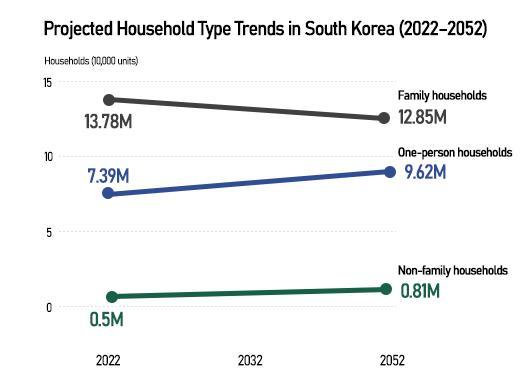
SEOUL, October 24 (AJP) - South Korea has taken a small but symbolic step toward recognizing diverse family structures by including cohabiting couples for the first time in its national census — a quiet shift in a country still wrestling with traditional views on marriage and gender.
The 2025 Population and Housing Census, conducted from Wednesday through mid-November, now includes a new category for "unmarried cohabiting partners," the Ministry of Data and Statistics said. Couples may select this option regardless of gender — meaning same-sex partners can, for the first time since the census began in 1925, identify their household relationship in official records.
Conducted every five years on a sample of 20 percent of all households, the census provides core data on Korea’s population, housing, and family composition.

"The new category was introduced to reflect the growing number of people living together even though they are not legally married," a ministry official said. "We decided to specify 'unmarried cohabiting partner' as a separate option to better capture the range of cohabiting relationships that exist in society. Social surveys also show that public perceptions of unmarried cohabitation are becoming more positive."
The addition has been welcomed by LGBTQ+ and civil rights advocates. Yi Ho-rim, executive director of Marriage for All Korea, which campaigns for the legalization of same-sex marriage, called the move "a landmark moment."
"It's the first time the existence of people living with same-sex partners will be visible through official national statistics," Yi said. "This could inform future discussions on legalizing same-sex marriage in Korea."
Still, many remain cautious in a society where same-sex relationships face stigma and legal invisibility. "Because respondents must enter personal details such as name and workplace, it's uncertain how many same-sex couples will choose to disclose their status," Yi added. "Nevertheless, it's an important first step toward institutional recognition of diverse family forms."
The updated census will offer Korea's first official dataset on the scale and distribution of unmarried cohabiting couples. Similar systems already exist in many European countries — including France, the Netherlands, and Belgium — where registered cohabitation provides tax and welfare benefits comparable to marriage. Most European nations have also legalized same-sex marriage and permit joint adoption.
For now, South Korea's baby step marks a statistical acknowledgment — not yet legal recognition — but one that many see as a quiet milestone in a society where even data can drive social change.
Copyright ⓒ Aju Press All rights reserved.




